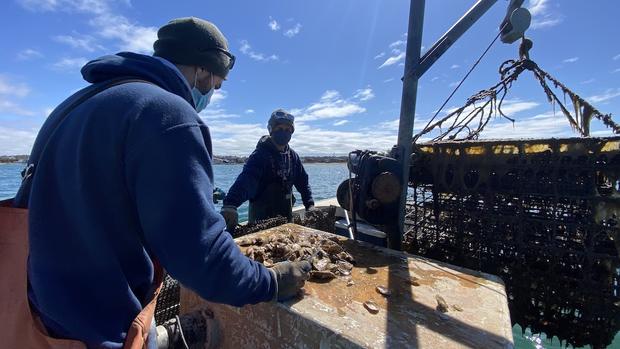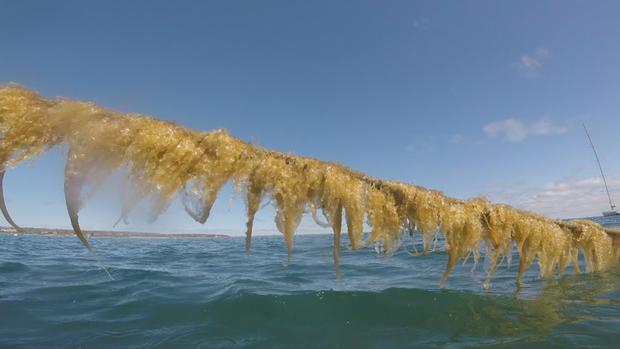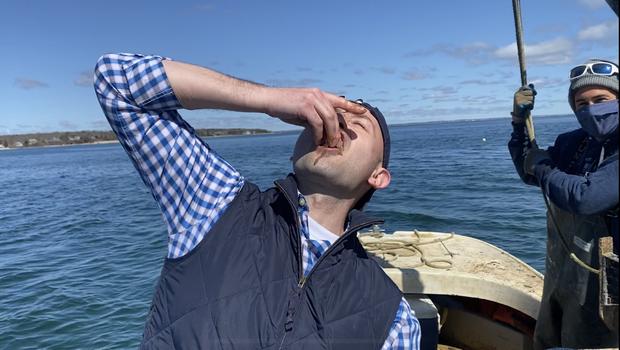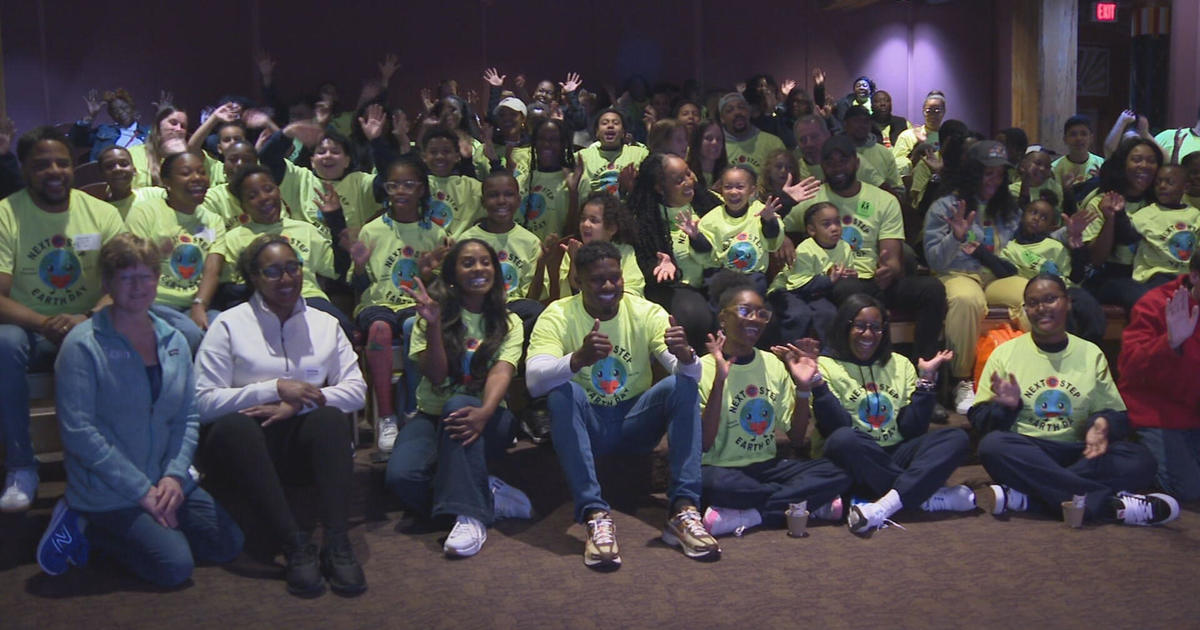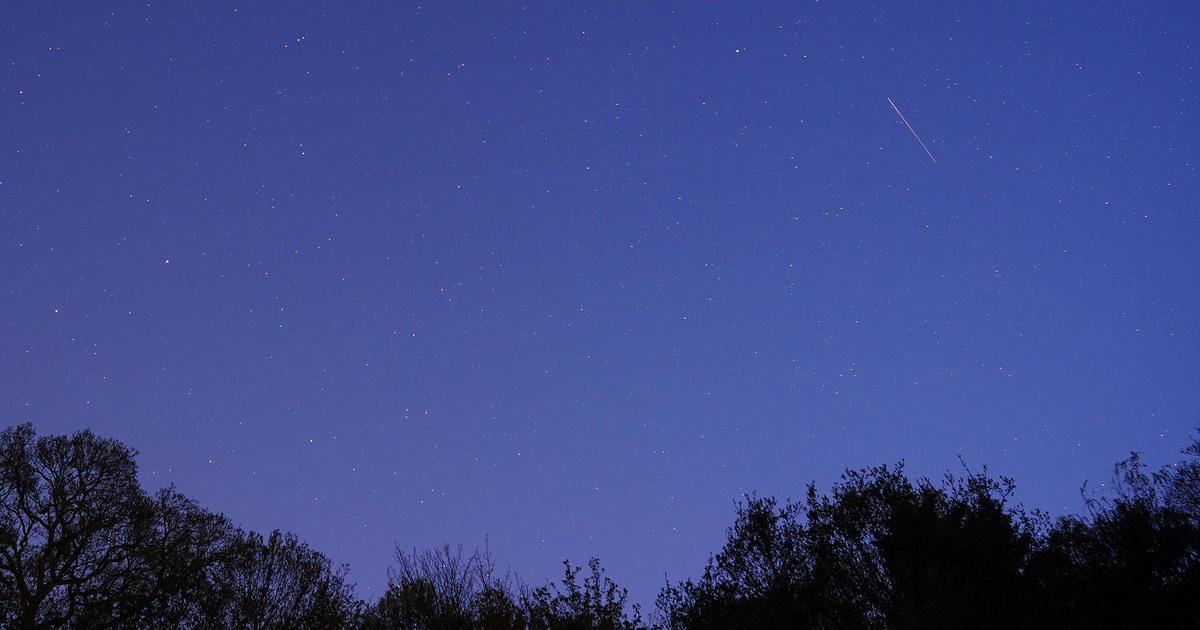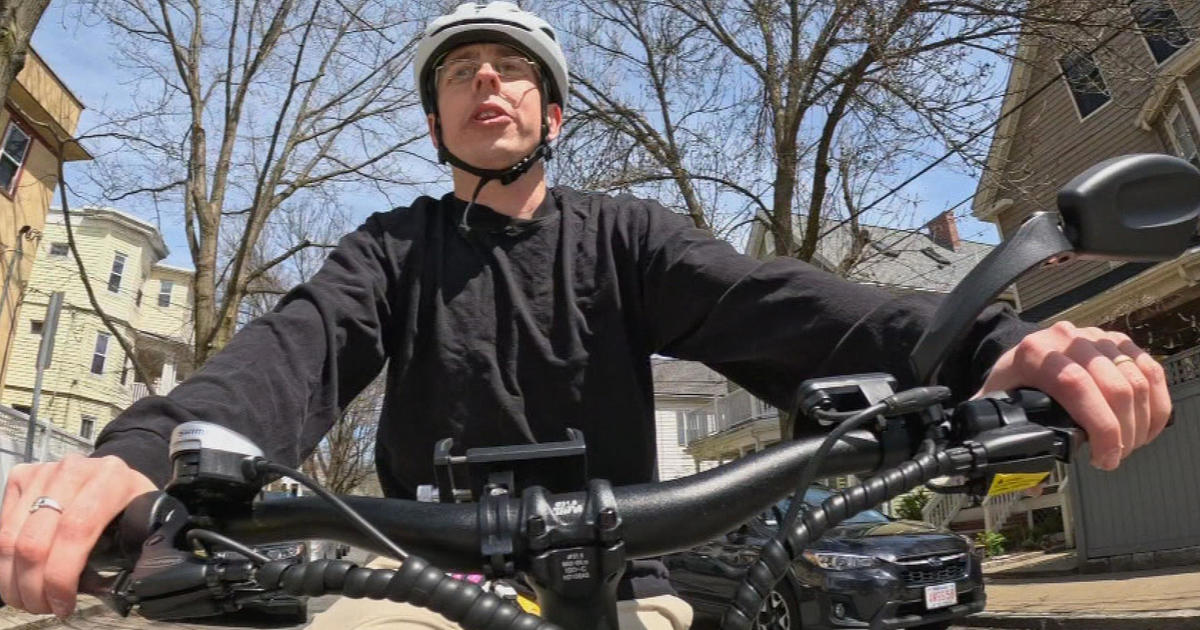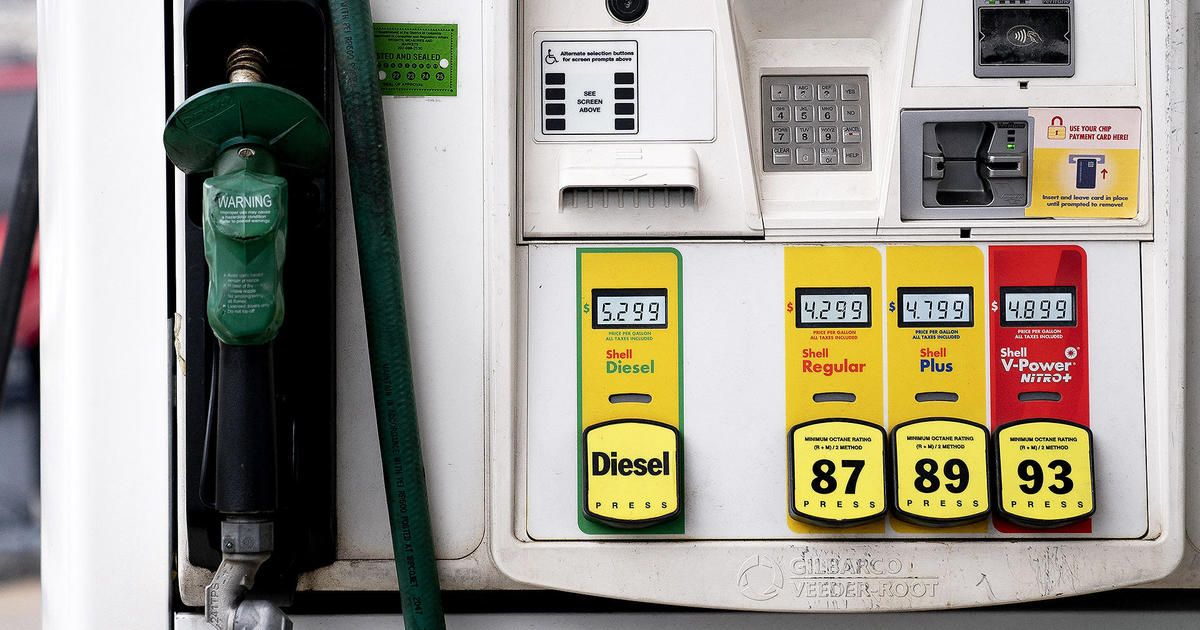3D Ocean Farm Off Martha's Vineyard Produces Eco-Friendly Oysters, Clams And Seaweed
MARTHA'S VINEYARD (CBS) - When you imagine a farm, you probably think of a big red barn with a silo nearby and a steady drone of a tractor as it churns up a field.
Did you know, however, that land agriculture through farming and raising animals contributes about 25-percent of all greenhouse gases to the atmosphere? A big portion of those emissions go directly into the ocean.
Read: More Eye On Earth Stories
So imagine a farm where you don't need to water, you don't need to fertilize, and don't have any carbon emissions. That would be the farm of the future.
That takes me to the Atlantic Ocean off the coast of Martha's Vineyard to visit the only open ocean 3D farm in Massachusetts.
Dan and Greg Martino are brothers and co-owners of Cottage City Oysters in Vineyard Haven on Martha's Vineyard. They created their business in 2014 after giving up otherwise successful careers in Houston, Texas.
The reason?
To become more environmentally friendly in their work.
"I was in finance and Dan was on a project - he's a video guy and said we really need to check out oyster farming. I was like 'What are you talking about? Cool, I'll make a spreadsheet and look at the numbers,'" Greg told WBZ-TV. "When you get out on a farm and you experience bringing oysters out of the water that produce sustainable protein. Mother Nature does it all."
Cottage City Oysters has a two-acre plot of ocean not far from the docks at Vineyard Haven where they farm oysters, clams, and seaweed. They maximize the space by putting the shellfish cages on the bottom of the ocean, with seaweed suspended above, growing on a long rope. While this concept seems simple, it's also revolutionary. This method of farming the ocean maximizes surface area, making it the most productive way to farm a space.
Admittedly, their farm isn't much to look at beyond a few buoys, but beneath the surface, a million oysters sit in cages, waiting to be shucked.
Most oyster farms in New England reside on tidal flats. At high tide, the cages are underwater then low tide arrives exposing the oysters.
For the Martinos, their farm is sub-tidal - always under water. While that does present some challenges, "it is the ocean," Dan Martino told me, it also presents a unique opportunity - the ability to grow the seaweed above the oysters.
It may come as a surprise but "seaweed and kelp sequester more carbon than the rainforest and actually produce more oxygen than the rainforest," said Greg.
It's true. According to the National Oceanic and Atmospheric Administration, between 50-to-80 percent of all oxygen that we breath comes from the ocean.
But the seaweed isn't the only sustainable crop on their farm. I mean, their name is Cottage City Oysters.
Each oyster shell has 12 grams of carbon in it, captured for thousands of years. Additionally, shellfish are filter feeders, eating algae and spitting out cleaner water. Each oyster 'cleans' 50 gallons of water each day.
This is why sustainable farms like Cottage City Oysters will be so important in the future - they act as a carbon sink.
The brothers will be the first to tell you that seaweed obviously doesn't have the best reputation, but are quick to defend it.
"It's like nature's multivitamin. You eat, it boosts your immune system and makes you healthier," said Dan.
I was apprehensive at first, but I tasted their sugar kelp straight off the lines and I have to say, it really was pretty good.
"Add a little sesame seed oil on top of this, it's phenomenal," said Greg through a smile.
The sugar kelp isn't just good for humans, but animals as well. Multiple recent studies have shown that if you replace just one percent of a cow's diet with seaweed could reduce its methane emissions by up to 85-percent. That is a huge reduction in a dangerous greenhouse gas.
The brothers hope their model of farming the ocean can be an example for the state and possibly the world.
